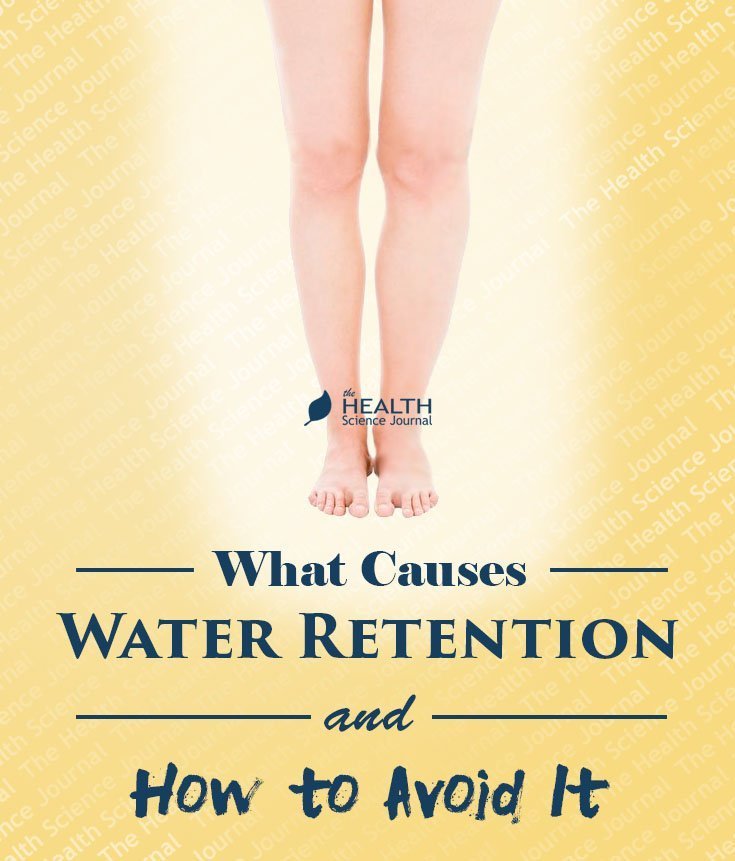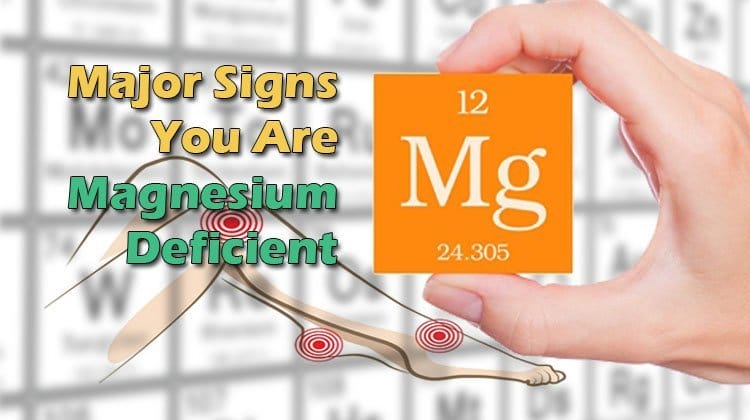
Our bodies are mostly water. It’s in our blood, muscles, organs, and even the bones. We need it, but sometimes our body can hold on to too much of it. This is called water retention, or edema, and it causes puffiness and swelling, especially in the extremities.
While anyone can experience bloating and swelling every once in a while, water retention can be a serious condition and should not be ignored. Water retention causes are well elaborated and, luckily, most of the time the condition can be overcome by changing a few lifestyle factors.
What Causes Water Retention?
Water retention, or edema, is swelling caused by excess fluid trapped in the circulatory system or within tissues and cavities. Although edema can affect any part of the body, its most commonly noticed in the hands, arms, feet, ankles and legs.
Fluid retention if often caused by certain medical conditions and medications. In fact, some causes for mild water retention include:
- Sedentary lifestyle and inactivity;
- Eating meals that are high in salt;
- Premenstrual symptoms;
Water retention can also be a side effect of some medications, including:
- High blood pressure medications;
- Nonsteroidal anti-inflammatory drugs;
- Steroid drugs;
- Estrogens;
- Certain diabetes medications called thiazolidinediones;
However, water retention can also be a symptom of a severe medical condition like congestive heart failure, liver cirrhosis, kidney disease, kidney damage, damaged veins, lymphatic issues, low albumin, allergic reactions, blood clots, burns, life-threatening infections, and more (1). If you’re having sudden or severe water retention seek medical attention immediately.
Symptoms will mainly depend on the underlying cause. If you suspect that you might have the condition, look out for these symptoms of water retention:
- Swelling or puffiness of the tissue directly under your skin;
- Stretched or shiny skin;
- The skin may retain a dimple after being pressed for 10 seconds;
- Puffiness of the ankles, face or eyes;
- Fuller veins on the hands and neck;
- Increased abdominal size.
Other symptoms may also include shortness of breath and chest pain, raised pulse rate and stiff joints. These may be the signs of pulmonary edema, which requires immediate medical treatment.
6 Common Water Retention Causes
1. Eating processed foods
Processed foods contain way too many processed sugar, salt, and artificial additives. These ingredients can all contribute towards edema (2) as they put excess stress on the kidneys, liver, and other systems that regulate fluid retention.
2. Excessive sodium intake

Sodium binds to water in the body and helps maintain the balance of fluids both inside and outside of cells. If you often eat meals that are high in salt your body may retain water. While the kidneys can handle a little increase in salt by increasing sodium output in urine, eating salty food every day can cause permanent kidney damage and chronic edema.
Increase your water intake to flush out excess salt and replace it with flavorful spices in your kitchen.
3. Dehydration
Thirst isn’t always a reliable early indicator of the body’s need for water. Many people, particularly older adults, don’t feel thirsty until they’re already dehydrated. That’s why it’s important to increase water intake during hot weather or when you’re ill, or substitute solid for liquid foods, like soups and smoothies.
When your body doesn’t get enough fluids on daily basis, it might try to compensate by redirecting and preserving fluids normally lost by urination and perspiration. This is only temporary and the edema will subside when you increase fluid intake again. However, if you make a habit of not drinking enough water, you may experience chronic edema.
4. Vitamin B6 Deficiency
Vitamin B6 is a group of several related vitamins which are important for the formation of red blood cells, and other important functions in the body.
Vitamin B6 has been shown to reduce water retention in women with premenstrual syndrome (3).
Foods rich in vitamin B6 include bananas, potatoes, walnuts and meat. It’s also found in fish, potatoes, chickpeas, starchy vegetables, and certain fruits.
5. Magnesium Deficiency

Magnesium is a very important mineral, involved in more than 300 enzymatic reactions in the body.
Increasing your magnesium intake may help reduce water retention. One study found that 200 mg of magnesium per day reduced water retention in women with premenstrual symptoms (PMS) (4).
Good sources of magnesium include nuts, whole grains, dark chocolate and leafy, green vegetables. It is also available as a supplement.
6. Potassium Deficiency
Potassium also has a role in regulating blood pressure and intracellular fluids. It helps reduce water retention in two ways, by decreasing sodium levels and increasing urine production (5).
Low potassium levels can be caused by dehydration, diarrhea, excessive sweating (hyperhidrosis) and laxative abuse. This can lead to edema and impaired cellular processes.
Bananas, avocados and tomatoes are examples of foods that are high in potassium.
Ways to Reduce Water Retention
While pharmaceutical options do exist, herbs are generally a safe way to strengthen and tone the body’s systems (15). Just take care if you are taking medicine as they can interact with many medications and have certain side effects.

1. Dandelion
This common weed has plenty of medicinal and household uses. Shortly after drinking dandelion root tea or taking a dandelion extract, the frequency and output of urination increases significantly (6, 7). Dandelion can interact with many medications, including antibiotics and lithium. Talk to your doctor before starting treatment.
2. Hawthorn
This rose family plant contains enzymes which increase sodium excretion through urine while also reducing the uric acid in this fluid (8). Its berries contain compounds which can lower blood cholesterol, reduce cardiovascular disease risk and have anti-tumor and anti-inflammatory properties (9).
3. Horsetail
Extracts and other preparations of horsetail have served as herbal remedies, with records dating to ancient Greek and Roman medical sources. Today it’s used as a diuretic and functions as well as the prescription diuretic hydrochlorothiazide without flushing out essential electrolytes (10).
4. Juniper
Juniper berries are used medicinally to treat a variety of digestive issues as well as urinary tract infections and bladder and kidney issues. It’s a powerful diuretic that significantly increases urine volume without affecting potassium levels (11).
5. Green and Black Tea

The caffeine found in green and black tea has diuretic effects (12). In fact, within as little as two hours of drinking tea, urine output and volume steadily increases. Drinking 2 to 3 cups of tea per day can help with water retention.
6. Parsley
This popular herb benefits your kidney and bladder. Among other things, it can be used in treating urinary tract infection, kidney stones, edema, and more. Pregnant women should avoid parsley tea, as it can increase the risk of miscarriage.
7. Hibiscus
The fruit acids in hibiscus may work like a laxative. One species of hibiscus, roselle, has diuretic, natriuretic, and potassium-sparing effects by influencing aldosterone activity (13).
Bottom Line
Some simple dietary changes may help reduce water retention. For starters, you can try eating less salt, while eating more foods rich in magnesium, potassium and vitamin B6. Having an active lifestyle or doing light exercise helps pump excess fluids to your circulatory system and kidneys. Massaging the area of the excess fluid can also stimulate blood flow and make it easier for your body to eliminate the excess fluid.
However, if water retention persists or causes a lot of problems in your life, then you may want to see a doctor.

